48. What Were the Top Seven Issues for Lorehaven Readers in 2020?
Podcast: Play in new window | Download (Duration: 1:07:12 — 62.9MB) | Embed
Last year wasn’t all about politics and pandemic-pandemonium. From little space babies eating tadpoles, to that Jesus TV show, to not-quite-forgotten trends, we’re exploring the top seven most-discussed issues at Lorehaven.com today on Fantastical Truth.
We take these in descending order:
7. Fantastical Truth ep. 2: What Do We Mean By Saying ‘It’s a Christian Story’?
6. On Canceling the ‘Baby-Eating’ Baby Yoda, Parker J. Cole
In The Mandalorian, from what I’ve seen of posts, Baby Yoda is eating the eggs of some frog alien lady. Apparently, this frog alien lady or whatever, is the last of her kind and her babies are the future and he’s chomping on them. Due to the “controversy” the producers clarified that the eggs are “not fertilized” so there’s no actual “baby” he’s chomping on. They compared it to us eating chicken eggs. This apparently backfired because now, some of the fans were really disgusted now.
It was meant as a comic relief. Just like ALF trying to eat Lucky the cat. Who was really lucky after all.
Yet, the uproar is up. Now, cute Baby Yoda is now cannibal Baby Yoda and the scourge of the universe.
You gotta be kidding me.
This is the latest example of a culture who has lost its soul and is replaced with a veneer of morality. For goodness’ sake! Baby Yoda ain’t real. The frog alien lady ain’t real. The eggs, the puppet or CG Baby Yoda is eating ain’t real. To throw all this shade on a puppet is ridiculous.
5. The Chosen: Speculative Fiction Meets a Factual Savior, Cap Stewart
Led by writer/director/producer Dallas Jenkins, the filmmakers have chosen to use the format of a multi-season TV show, giving the narrative ample room to breathe, and thus avoiding just hitting the highlights of the gospels before the credits roll. Furthermore, the show approaches the topic of Jesus’ ministry, not primarily from Christ’s perspective, but from the perspective of those around him. As Jenkins himself has stated, “[I]f the audience can encounter Jesus through the eyes of those who met Him, the audience can be impacted in the same way they were.”The genius behind this approach seems obvious in retrospect. While Christ is the truest and greatest protagonist the universe has ever known, there is, by necessity, a bit of a disconnect between His perspective and that of every other human being in history. Jesus is infinitely admirable, yes, but not easily relatable. There are limits to how a sinful and finite audience can relate to a holy and infinite character.
It would be a gross misstatement to say that Jesus is not the focus of The Chosen. But rather than His experience being the focal point, it is His work in and through the lives of others—as they experienced it—that drives the story forward.
Cap Stewart’s new comment:
Every time I wrote about THE CHOSEN, at Lorehaven and elsewhere, it garnered an extraordinary amount of attention. This is, I think, a sign of the show’s increasing popularity and cultural traction. In fact, THE CHOSEN is striking a chord with audiences all across the globe.
Part of the reason for the show’s success is what you might call the Aslan effect. In the Chronicles of Narnia, it is indisputable that the narrative and thematic hinge on which everything else turns is Aslan, the Christ figure within the world of Narnia. Every time he is on the page, we are amazed and mesmerized. And yet, if you evaluate the series as a whole, Aslan’s “screen time” is relatively short when compared to all the other characters. What’s more, the books are never written from his perspective—only from those who are affected by him.
This is the same approach THE CHOSEN takes with the central character of Christ. The focus of the show is on those around Jesus—those affected by him. And as an audience, we much more readily identify with the lives of finite, sinful humans and how an infinite and holy God radically changes their hearts, minds, and lives. It’s a great way to craft an emotionally engaging narrative. Almost paradoxically, THE CHOSEN emphasizes the glory and greatness of Christ all the more by keeping him on the narrative periphery.
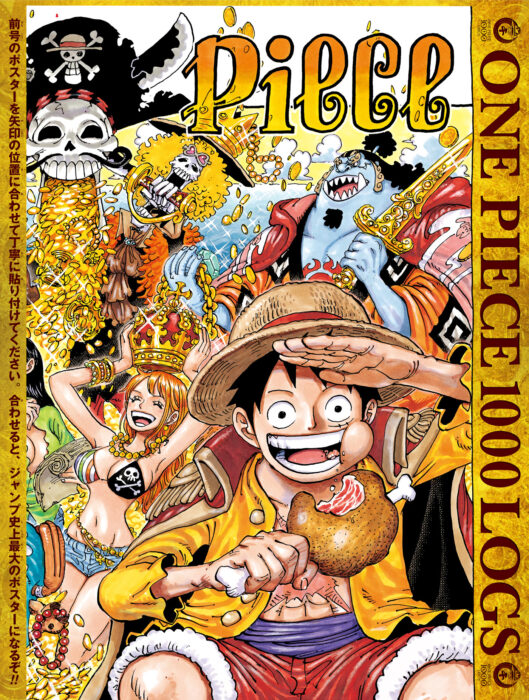 4. How Do the Fishmen and Pirates of ‘One Piece’ Subvert Systemic Racism, L. Jagi Lamplighter
4. How Do the Fishmen and Pirates of ‘One Piece’ Subvert Systemic Racism, L. Jagi Lamplighter
Ten thousand feet below the surface of the sea, trouble is brewing. Ancient racial hatred is simmering, growing dangerously close to boiling over.
This is the situation in the Fishman Island Arc of the long-running anime/manga One Piece when the main characters, the Straw Hat Pirates, arrive at Fishman Island. In the midst of the action and humor of this pirate adventure story, author Eiichiro Oda gives us an unexpectedly insightful glimpse into racism and its effects upon a culture.
Fishman Island, deep beneath the ocean, is inhabited by a race of undersea beings who are both stronger and more-varied than humans. Some are beautiful, such as mermaids. Others are huge and powerful, like shark-men or octopus-men, massive creatures who can crush a human with a single blow. The loveliness of the first and the fearsome destructiveness of the second have made the fishmen into hot commodities at the slave markets of Sabaody.
Pirates often descend to their home island, deep under the sea, in order to kidnap fishmen and their children. Fishmen pirates return the favor, terrorizing humans and destroying their towns. This clash of races has been going on for generations.
In the midst of this racial animosity, two inhabitants of Fishman Island saw the toll it was taking on their society and vowed make a change. They both saw the same suffering. Their reaction, however, could not have been more different.
L. Jagi Lamplighter’s new comment:
Stories have a way of simplifying complex issues that often makes light of them. One of the wonderful things about One Piece is that it does not simplify these problems. Long-held hatred is not brushed away in an hour or a day or even a year.
Part of the reason for this is that One Piece’s long-running format allows the story to delve into the heights and depths of our human experience, but then, part of the reason that the series is so long-running is because it does such a top-notch job of portraying such problems. It highlights serious issues without trivializing them.
As Christians, we yearn for improvements in the suffering of our fellow man, but a story that tells us that the solution can come rapidly can sometimes damage our faith. We grow impatient when God does not send a solution instantly. We forget that patience and longsuffering are virtues upon which the Bible expounds. But stories that remind us that perseverance is needed, that we should not give up, even in the face of terrible adversity—but which yet also give us hope that there is a light at the end of the tunnel—these kinds of stories can help build our faith.
These are the kinds that are worthy of our time.
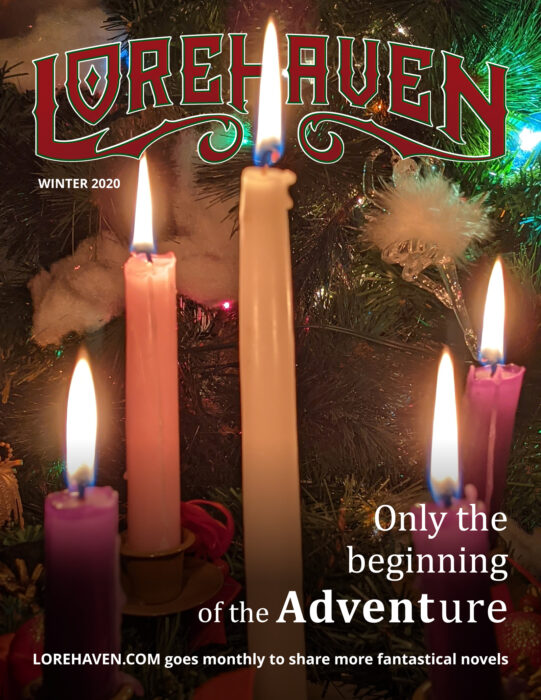 3. Lorehaven magazine itself
3. Lorehaven magazine itself
Lorehaven’s quarterly issue releases also proved very popular for readers. This year, however, we upgraded Lorehaven.com:
- New articles every week
- News posts, a lot of them
- Tuesday podcast episodes, as before
- Fridays: reviews of new fantastical Christian novels
- Also, if you subscribe, you can get notified about all these, or some!
- Get big answers about the Lorehaven mission in our new article, “Only the Beginning of the Adventure.”
2. Fantastical Truth ep. 7: How Does Jesus Define and Redeem His Gift of Imagination? | with Brian Godawa
1. Politics—which we didn’t specifically explore
- In 2020, politics dominated story discussion.
- We tried not to do this. But we must admit that people suspect politics > stories.
Fantastic fans
From Lavay Byrd, re. Wonder Woman 1984 v. Disneyfied Imagination: A Spoiler-Filled Defense, Anthony G. Cirilla
I actually liked Wonder Woman 1984 and its message of “be careful what you wish for”, and was quite shocked by so many negative reviews for the film! But reading this article definitely opened my eyes to the movie’s deeper message, and it made me appreciate the film (and Wonder Woman) all the more.
There is so much truth in this article— how several of the characters reflect today’s society in so many different ways. It makes me thing of the lyrics to one of TobyMac’s songs “I don’t want to gain the whole world and lose my soul”. The more you wish for things (based on lies such as popularity, envy, hate, power, fear, greed, selfishness, etc.), the more you lose yourself— the YOU who God made you to be.
Thank you so much for sharing this beautiful article!
From Sarah Daniels, re. Why ‘The Wild Swans’ Has Captivated Me Since Childhood, Elijah David
Great article! Wild Swans was always a favorite of mine too, I think I had a lovely big storybook about the tale. Yes, Anderson had several tales about self sacrificing, agape love…the original Little Mermaid, for example. I always thought the ending to that was so sweet, that she couldn’t bear to kill her prince even to save her own life, and was rewarded by becoming a Spirit of the Air and not sea foam…and the Snow Queen, how dear Gerda struggled through such hardships to save her friend Kai, even though he didn’t care about her anymore…the Disney versions were…um…different, haha.
Can’t wait to see more articles along this vein!
From Serena Chase, re. How Political Punditry Has Taken Over Christian Popular Subcultures, E. Stephen Burnett
Thoughtful piece. I especially appreciated this line: “Over the timespan of generations, a Christian subculture dominated by politics is hopelessly limited and ultimately ineffective for forming more Christlike people.” That’ll preach, as they say.
We must engage with our culture to understand who lives in the world with which we want to share the Gospel, but when political views become our religion (and a nation or its leader(s) becomes a standard to wave above the cross) we become cultists and idolators, operating apart from Christ.
ZACK: Speaking of politics, we avoided that last time! One fan appreciated it.
Elizabeth L., re. Fantastical Truth ep. 47: Why Do Some People Long for Escape to a Galactic Community?
Thank you for not going politically! I know it’s hard to avoid completely, but yes, listening to the Fantastical Truth, I’m not here for your thoughts on red vs blue (actually Halo’s Red vs Blue is much more entertaining). I’m here to listen to your discussion on all things SciFi, Fantasy and alien. 🙂
As far as sympathetic aliens, I think that’s why The Day The Earth Stood Still is my favorite movie. An alien that visits Earth to warn of our path of destruction and that other planets/aliens would rather have Earth destroyed than the violence to go into those far reaches of space. His help is rejected by most and he’s eventually shot and killed. …
Great podcast. I’ve missed a few because I’ve had to take on a 2nd job as my husband lost his and have just been overwhelmed lately. I saw the tweet this morning and realized I’d forgotten to listen!
Next on Fantastical Truth
Christian fans want to build bigger audiences for fantastical stories. Yet how might we help our Christian family and friends share in this happiness? How can we help transform Christian deserts into thriving lands that love excellent fantastical fiction? Here’s a hint: we can’t wait to “the chosen ones” to come along and defeat the darkness and save the land. Instead, we actually need to skip the fantasies and borrow from sci-fi, and commit to the multi-generational project of “terraforming” our churches, families, and Christian subcultures.






















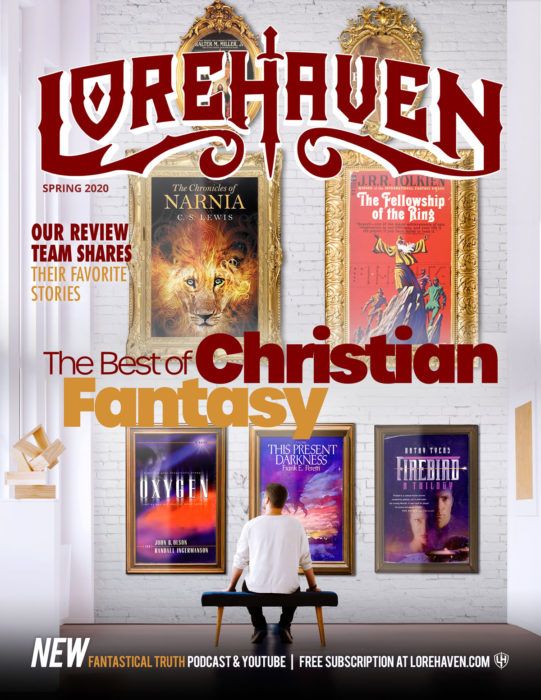
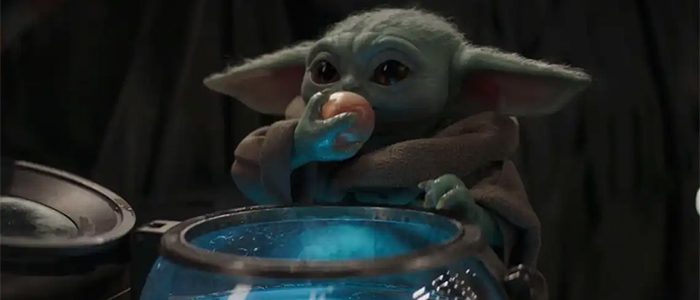
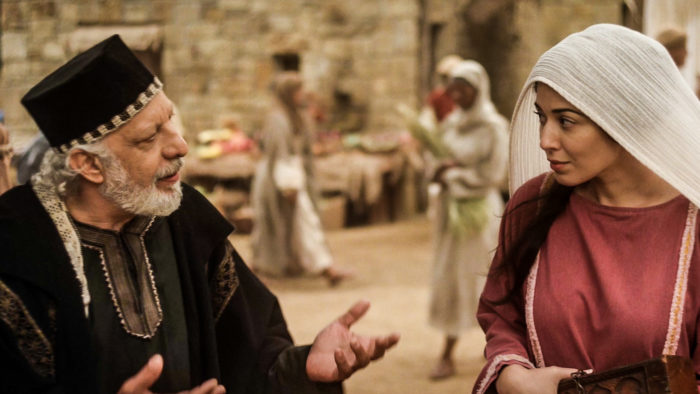








Hi guys. I was glad to hear Sarah Daniels bring out the Christian themes of some of Hans Christian Andersen’s tales in her comments on Elijah David’s article. However, I have a bit of a different opinion than Sarah on Andersen’s adaptations by Disney. Now, I agree completely with her on “The Little Mermaid.” Andersen’s version is a beautiful story of agape love, whereas Disney’s is just the opposite, which definitely emphasizes satisfying the desire to get what you want. (I feel like I’m being kind of hard on poor Ariel; despite the fish tail, she is rather typical). But I have to disagree on “Frozen.” In fact, when Sarah pointed out how, in “The Snow Queen,” Gerda pursues Kai out of love when he no longer loves her, I thought immediately of how Anna continually sought to save Elsa while they were still alienated, when Elsa was continuing to reject her. In fact, I will go so far as to say that Anna is a “redemptive hero” (to borrow a phrase from Pastor and genre film scholar Paul Leggett) in the Christian tradition, the one who truly “lets it go” … in self-abandonment. By the way, I feel that the original “Frozen” is still a largely misunderstood movie, even by a lot of its fans. Anyone interested in my thoughts please check out my blog “Why Everyone is Wrong About Frozen – the Movie No One Ever Sees.” I hope if Sarah is listening she’ll check it out and contact me through my website to let me know what she thinks. You guys keep up this great ministry, and here’s the address: https://minorprofitpress.com/2019/02/20/why-everyone-is-wrong-about-frozen-part-one-the-movie-no-one-ever-sees/
I was glad to hear Sarah Daniels bring out the Christian themes of some of Hans Christian Andersen’s tales in her comments on Elijah David’s article. However, I have a bit of a different opinion than Sarah on Andersen’s adaptations by Disney. Now, I agree completely with her on “The Little Mermaid.” Andersen’s version is a beautiful story of agape love, whereas Disney’s is just the opposite, which definitely emphasizes satisfying the desire to get what you want. (I feel like I’m being kind of hard on poor Ariel; despite the fish tail, she is rather typical). But I have to disagree on “Frozen.” In fact, when Sarah pointed out how, in “The Snow Queen,” Gerda pursues Kai out of love when he no longer loves her, I thought immediately of how Anna continually sought to save Elsa while they were still alienated, when Elsa was continuing to reject her. In fact, I will go so far as to say that Anna is a “redemptive hero” (to borrow a phrase from Pastor and genre film scholar Paul Leggett) in the Christian tradition, the one who truly “lets it go” … in self-abandonment. By the way, I feel that the original “Frozen” is still a largely misunderstood movie, even by a lot of its fans. Anyone interested in my thoughts please check out my blog “Why Everyone is Wrong About Frozen – the Movie No One Ever Sees.” I hope if Sarah is reading, she’ll check it out and contact me through my website to let me know what she thinks. You guys keep up this great ministry, and here’s the address: https://minorprofitpress.com/2019/02/20/why-everyone-is-wrong-about-frozen-part-one-the-movie-no-one-ever-sees/
No matter where you go, you step in a wet, sticky puddle of politics! What are some fantastical stories that help us think about power, and country-influencing/rule-making decisions?